Healthy Heart, Healthy Life
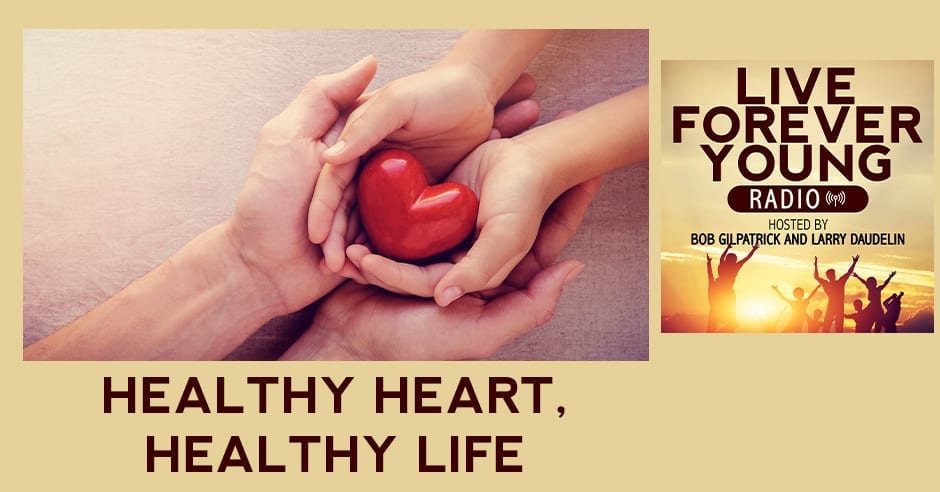
Heart Disease is the leading cause of death for Americans in the United States, yet it remains one of the most preventable diseases. In this show, Bob Gilpatrick and Rollie Culp look at some of the key factors that lead to cardiovascular degeneration, and preventative measures on how to avoid these conditions.
The death rate of a spouse who recently lost their partner is 21 times higher over the following 24 hours and remains elevated for several weeks afterward. Tune in with Bob and Rollie as they share how to help a spouse cope with the loss of a loved one and the feelings they experience.
---
Watch the podcast here:
Listen to the podcast here:
[fusebox_track_player url="https://feeds.podetize.com/ep/Af1FyXpDj/media" title="Healthy Heart, Healthy Life " social_linkedin="true" social_pinterest="true" social_email="true" ]
Healthy Heart, Healthy Life
Tips to Prevent Heart Disease and Cope with Loss
Heart disease is the number one killer in America, yet remains one of the most preventable. On this show, we look at some of the main factors that contribute to cardiovascular conditions and how to avoid them. The death rate of a spouse who lost their partner is 21 times higher over the following 24 hours, and remains elevated for several weeks afterwards. Bob and Rollie share how to help a spouse who lost a loved one through the grieving and loss they’ve experienced. Sit back, relax and get ready to live forever young.
---
I'm here with Rollie Culp. How are you doing?
I'm doing good. I'm glad to be here.
We're talking about heart health. Heart disease is the number one cause of death worldwide and here in the United States where we are. There's good news about heart health. When people have some of the information we're going to give, you're going to realize that most of heart disease is preventable through your diet, lifestyle, stress management, proper sleep and proper nutritional supplements.
It can almost ensure that you will be a person who has a healthy heart all throughout their life. Part of living forever young, your heart has to be forever young. It has to be strong. It has to have a clear circulatory system to pump blood through. If it can remain strong and have a good circulatory system, it will last you your whole lifelong. You'll probably die of something else other than a heart problem.
We don't want to die ever but I'd rather have it be something than a heart problem because that’s not good.
We were talking about how it's interesting that things related to heart health are similar to things related to diabetes, the health of your endocrine system, and how your body processes and metabolizes sugar and fat for fuel.
There are a lot of common things. In regard to what is causing people to have heart disease, most of the studies and the doctors that are researching this are pointing to inflammation. Inflammation is something that every person has. Human beings are a log that's burning in a fire. In some cases, you could have a log that has very high BTUs like hickory or black walnut. You could have the fluid fixed just right and the right amount of oxygen going through, and this log will burn efficiently for a long time.
It's putting off waste products in the form of smoke and ash. On the other hand, you could have a log that's very dry that has low BTUs. BTU is British Thermal Unit. You could have the fluid wide open and someone pumping the bellows, that log would burn up and be gone in half an hour instead of burning for many hours. It’s the same thing with human beings.
If we have high inflammation, we're like that log that's burning up fast. If we have low inflammation, we're like the hickory log. We'll talk about the strategies for reducing inflammation, but other things that are leading to heart disease are people who have obesity or overweight, don't exercise properly, with poor nutrition, with high blood sugar, with an aberrant microbiome. Their gut flora is out of balance, and poor nutrition focused on the lack of vitamin D3, the sunshine vitamin, and stress.
Stress is a huge factor.
These are things that people have to be able to watch out for. What can we do in regard to this? If you start with inflammation, which is the main thing. The first thing you want to do is avoid stuff that's causing inflammation like toxins in your environment. You can't avoid all the toxins in your environment, but the two that are causing the most problems you can avoid.
The first thing is people need to be able to leave their shoes outside the house. You're walking around during the day. You're picking up tire dust, car fumes, and pesticides on your shoes. You bring them inside the house and take them off. Some people leave them right in the bedroom where they're sleeping. It's off gassing toxins that you're breathing in all night long. You want to leave your shoes outside the house that not only contributes to inflammation, but it directly contributes to cancer in addition to heart disease that's caused by inflammation.
The second thing is overcooking your meat. If people are cooking beef, chicken or pork over 300 degrees on dry heat, you're creating glycotoxins which are highly inflammatory. These are things that you can avoid. You want to cook in a slow cooker or cook with some liquid so that you don't create these toxins.
That will go a long way to reducing your inflammation. People can also get antioxidants that will keep inflammation down. Antioxidants can be simple as the A, C, E vitamins, some zinc, some selenium. You can also get powerful antioxidants like superoxide dismutase, trimethyl glycine glutathione, etc. These more powerful antioxidants are available in some of the products from Boomers Forever Young like sprouted barley seeds and a product called Boomer Boost. When people take those products, their inflammation comes down right away and dramatically.
If someone has a blood test that shows their inflammation level is a 4 or 5, that's high. That test is called C-reactive protein. You can take these products. Even without avoiding toxins, it's going to come down by a factor of 10. It will go to 0.5 or below.
By lowering that, you're slowing the burn like with logs.
The rate of inflammation goes way down. The amount of damage to your coronary arteries into your cholesterol is much lower to the point where you will not get coronary artery disease most likely in the absence of this inflammation.
A long time ago, Time magazine even wrote on the inflammation. They call it the silent killer. There are not a lot of things people do to check it. There's the CRP level that measures the liver enzyme. You get that done and that gives you a baseline. You say anything usually over 3 is not good.
Three is the average that people have. Even that is going to make you get heart disease. The rule of thumb is you want to get it down to below 0.5.
What's the most CRP you've ever heard of?
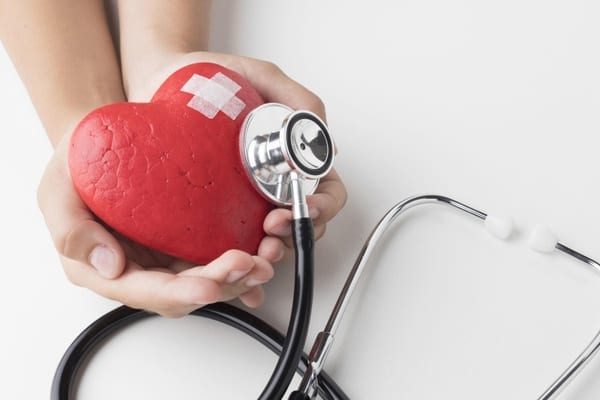
I've seen someone with 30. Now CRP can go way up if someone has an infection or some other event. They've been exposed to massive amount of toxins or poisoning by black mold or something like that. You can get it down with antioxidants, but you also might have to detox. The good news is the products we're talking about like the sprouted barley seeds and Boomer Boost also detoxify you.
Other nutritional things that people need, you want to know your Vitamin D3 level. There’s a direct correlation between low D3 and heart disease. You want to get that level up to about 70. You're going to need to take supplements to do that. It's the sunshine vitamin and people aren't out in the sun anymore. You also need Coenzyme Q10, which is in abundance in your heart muscle and helps with the production of energy.
Your heart needs a lot of energy. That compound is also in Boomer Boost. Another is phosphatidylcholine, which is a compound that helps to keep your cell walls functioning properly and helps keep your arteries elastic so that when your heart beats, it's easy to get the blood through. It makes it less likely that you'll have high blood pressure. Another cause of heart disease is chronic high blood pressure. Those are some of the things. You also want to pay close attention to every aspect of your circulation, not only the circulation of the first 25% of your system which is through the larger arteries and veins. The ability of your heart to pump is only goes as far as that first 25%.
The majority is microcirculation through microscopic capillaries that have to expand and contract in order for the blood to go through. That's where the rubber meets the pavement. Almost everyone that has heart disease has poor microcirculation in their heart muscle. The cells of the heart that need the Coenzyme Q10, oxygen, and all the other nutrients, the nutrients and the oxygen are delivered at the level of the capillary. Even though your heart muscle is right there, your heart is not pumping blood to those capillaries. They're too tiny. The capillaries are opening and closing. If you have poor microcirculation, you're going to have poor health for your heart.
We had Ann on here and she was talking about how small they are. If you took your hair and you looked at it, some of them are thinner than the hairs.
It’s about five times thinner.
That part in your heart isn't directly fed by the heart. It relies on that undulation of the vessel itself.
The expansion and contraction of the vessel. The larger arteries in your heart, the blood is being pumped through. It's being pumped through the large arteries of your body as well, but very quickly it branches off into these tiny vessels, and you need to pay attention to that. They respond to nutrition. Arginine leads to the production of nitric oxide, which acts on the inside lining of those capillaries and forced them to expand to get that blood through. The other thing is pulsed electromagnetic fields. Those capillaries are responding to pulses from the core of the earth, the molten core. As you age, you respond less to those pulses. They have a PEMF mat that people can lie on. It turns on the power supply and increases your circulation.
That's extremely important especially if you've got heart problems.
The other thing is with exercise, people need to do some resistance exercise with some stretch band and those weights. You also have to do some aerobic exercise, fast walking, or some other exercise to make your heart muscles strong. The other thing is paying attention to your gut flora. Make sure that you have a good probiotic you can take, and pay attention to your sleep so that you get adequate sleep. We'll do a whole show on sleep later on.
We were talking a little bit in the prior show that there are cycles you want to pay attention to. If you didn't catch that, you want to go back to the prior episode. We talk about it's about an hour and a half cycle.
That's the show in diabetes. The other thing is some of the other tests you want to make sure that you get including your D3 level. You're trying to keep it around 70 or 80. You also want to make sure you get your sugar levels checked, your A1C and your fasting blood sugar. You also want to make sure that you check your inflammation, CRP, and importantly is iron. Many people have high iron levels and iron can cause heart disease. High iron is going to interact inside your cells with hydrogen peroxide that is being produced as a byproduct of aerobic life of you creating energy. It makes a free radical that damages your mitochondria, which are the energy powerhouses inside your cells. They're in abundance in heart cells.
If you start damaging your mitochondria because your iron is too high, then you're going to have a weak heart. You want to get your iron levels checked. There are numerous different ways to check your iron levels. In general, you want to be towards the lower end of the scale, not the higher end of the scale. Too low and you'll be anemic. Too high, you're going to damage your mitochondria. You want a sweet spot that’s a little bit lower than the middle. If your iron is too high, you can go and donate blood, and your iron level will back down.
I never would have thought about iron because when you bleed, the iron is what oxidizes and turns red. Isn't that right?
Yes. You want iron in your body because iron is part of your hemoglobin molecule. Without which, we wouldn't be alive. You don't want too little, you'll be anemic, but too high and you'll be creating damage. There's a sweet spot. It's like with everything. People have arsenic in their body. People have selenium in their body. Too much arsenic, too much selenium will kill you, but not enough and you won’t be healthy. There's always a range that you want to know, which is why it's important to get blood tests, urine tests, liver tests. These are some of the same things that help people stay healthy in relation to diabetes and heart health. Your body is interdependent. One thing about heart disease, heart attacks, and death from heart disease is that if someone has a heart attack and dies during the next 24 hours, if they have a spouse, their spouse is 21 times more likely to die on that day than if their spouse had not died.
The day after their spouse dies, the chances of the person who’s still alive passing away shoots up by 21%?
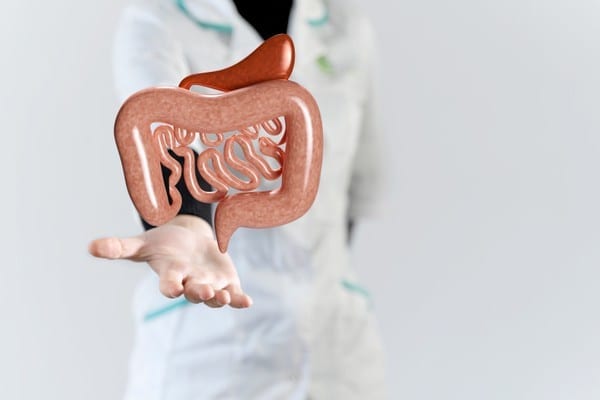
It’s 21 times over the next 24 hours after the death.
Does that go away after 24 hours?
It will go away. It remains for a number of weeks afterwards. It's about six times as high for the number of weeks afterwards. You're not out of the woods after 24 hours, but you hear quite often where a husband or wife will say to a child, “Grandma died.” The next day, “Grandpa died too.” It's common that you see this type of thing happen. What we want to talk about is what could we do about that? This is the tricky part. When I was in social work school, I did a Master's Degree in Social Work. We had to study all about death and dying, and the grieving process and how to help someone through the grieving process. There's a lot of respect required.
There's also a need for respect of the process that people will go through. They are going to be in shock. They're going to be angry. They're going to be grieving. Unless they get stuck, that grief will turn to sadness and acceptance months down the road. You want to be able to respect that part, but at the same time, if someone's at risk of dying right then in those 24 hours, what is it that you can do? We were talking about how would we help people to come up with an intervention to help the surviving spouse while still respecting what they're going through.
The process that they go through, you can't get over it. That doesn't work.
It wouldn't help. It would still be at that risk.
That 21% would shoot up to 30.
What we came up with was a tapping technique. Tapping is the emotional freedom technique where you tap on your fingertips, on the side of your nails, about five times each one, and then switch to the next one and then tap on your karate chop point, the soft spot on the bottom of your hand, and you repeat a phrase. We created a phrase that Rollie is going to say. Before we do that, I want to say this. A very common thing after someone passes away is the husband or wife who's the survivor wants to be alone. They'll say, "Let me go into my room and nobody please bother me.” People want to respect that, but we also have to remember they're in this window of high risk.
If you’re dad passed away, the last thing you want is for mom to now pass away. What you want to be able to do incur have a dialogue with mom and let her lie down in bed if she wants to. In this case, she might be crying. She might be curled up in a ball, very depressed and in shock. She may not want to hear about tapping on her fingertips and repeating after you with this phrase you're going to learn.
My suggestion is you do the tapping for her and say, “Mom, we want to keep you healthy. With your permission, I am going to tap lightly on your fingertips while I repeat some phrases over you. It's going to be like a little prayer.” If mom will say, “Okay” or even if mom falls asleep, you can do it while she's sleeping. You might have to wait until she falls asleep. You're going to do the tapping on her fingertips. Rollie, why don't you go ahead and repeat the phrase we created that we wrote down on a board over here on the wall so we get it right.
As I remember from the past ones, we start tapping on the sides of our fingers like this about five times, and then you're going to want to repeat this phrase for the spouse who’s in that zone. You would say, “Up until now, I thought I had to be overcome with the feeling of grief from my spouse dying, but I completely love and accept myself anyway. I'm so grateful now that I realized that I can stay in good health while respecting the life of my spouse.” As you're doing this, if the person's awake, you want to have them think about the aspects of that person that they're most grateful for like when we talk about on the other shows, lingering the gratitude. That will help them bring the chances of them in this unhealthy state down.
At the end of the tapping, you yourself can cross your hands over your heart. If mom will do the same cross your hands, cross your heart and breathe in. Taking a deep breath can create this feeling of peacefulness and a pattern interrupt because you brain tends to stop when you do this. The other thing in regard to this is people have in their upper right ventricle of their heart what are called neurites.
There are neurons like your brain has, but they're in your heart muscle. Your heart muscle is giving off a powerful pulse that is reaching out in a measurable way about 5 feet. In quantum theory, it is infinite. Every pulse your heart makes is influencing the whole universe.
It's not only coming from the front of your chest. It's coming from the back. You're putting off a circular PEMF that has an effect on other people because they also are putting out a PEMF. When yours reach theirs, you create these interference patterns.
By putting yourself into a state of acceptance of the grief, but also gratitude for knowing that you can stay healthy and that the other person you've tapped for can stay healthy, you are changing the pulse of your heart. You're putting out a different field. This is an important thing because the other person who is grieving, whose spouse has died using your presence and your PEMF, your Pulsed Electromagnetic Field is affecting theirs. It will have an effect on their heart.
They’re down and out. You give them a boost from your heart. You help them out of that zone that we’re talking about.
You can make it so that being so heartbroken won't break their physical heart.
That happens too. I've heard of that. My wife's grandmother passed away. She had some issues. About a month later, her son died. He had some heart issues. He had heart disease. It was like he was holding on until she passed away. Within a month after she passed away, he was gone. That would fall into that six times more likely to die. It might not have been a spouse, but it's a family member. It's not just the spouse.
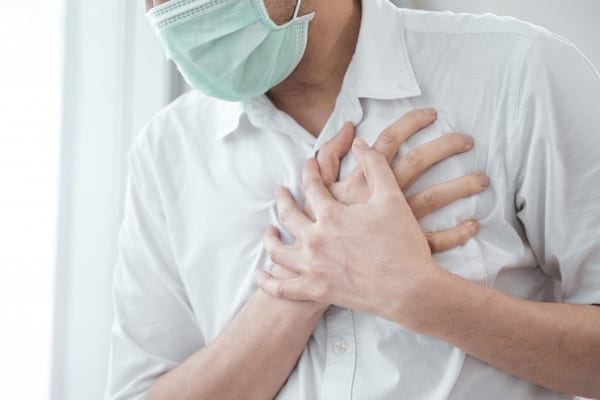
This was a research done on the spouse, but it's the same for other family members. Spouses tend to be a little bit more interconnected especially if they've had children together. This is a technique that people can use if there is a situation like this that occurs.
That's a good thing to have because in a situation like that, there might not be much that you can say. You have to be there for support. If you can give them an unseen boost from your heart. Why not?
That’s enough for now about heart health, a little bit about nutrition, circulation, and inflammation. In the event that someone does have an issue and pass away from heart disease, this technique. People can learn more about the emotional freedom technique from our YouTube channel. If people are on Boomers Forever Young YouTube channel, you can click on playlist. You can click on the Emotional Freedom Technique also called EFT or tapping. There are about five videos on there. Two of them are the basics of how you do it, where it came from, and why it works. We have one on the immune system and one on stress.
Anxiety and for weight loss too. When you guys do check that out, you can go to our YouTube, which is Boomers Forever Young, or you can go to LiveForeverYoungRadio.com. We'll have a videos page that those will be placed on. You can use those for reference because it is a powerful technique. I don't think it gets enough credit.
These are free videos. People want to go and learn to do tapping at a weekend course or whatever, it can be expensive, hundreds or thousands of dollars even. These are free videos where you can learn to do it on your own from these videos. You can always call us at Boomers Forever Young if you have specific questions about an issue that you're going through.
We have somebody there that can help you or point you in the right direction. I wanted to say thanks for bringing this new technique. Having that is probably a tool that many people never even knew existed. What a better time to have a tool than when someone passes away.
Rollie, thanks for being with me here on Live Forever Young Radio. Thank you, everybody. We'll see you on the next episode.
Important Links:
- Boomers Forever Young
- Diabetes - Past episode
- Boomers Forever Young - YouTube




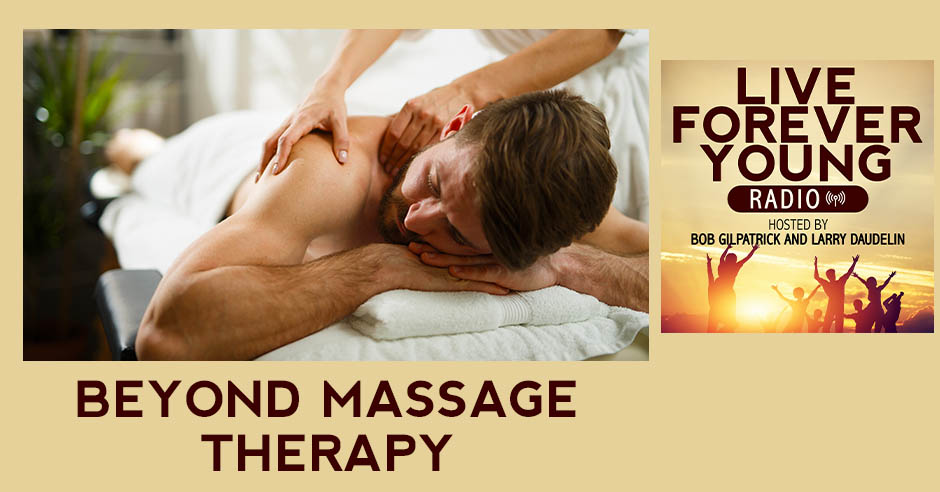
Leave a comment